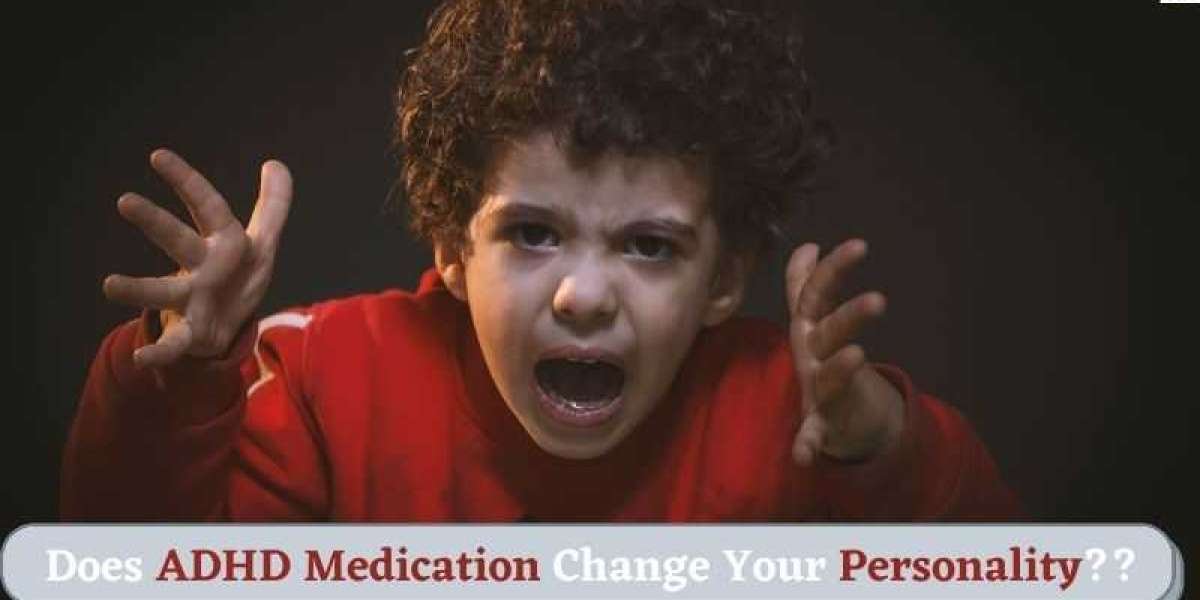Attention Deficit Hyperactivity Disorder (ADHD) is a neurodevelopmental condition that can present challenges related to attention, impulsivity, and hyperactivity. While medication is often a primary treatment, many individuals and families explore alternative therapies to complement or replace medication. In this exploration, we delve into various alternative approaches for managing ADHD, providing insights into their effectiveness and considerations for those seeking non-pharmacological solutions.
Understanding ADHD
ADHD is characterized by core symptoms:
Inattention: Difficulty sustaining attention on tasks, becoming easily distracted, and making careless mistakes.
Hyperactivity: Restlessness, fidgeting, and difficulty sitting still.
Impulsivity: Acting without thinking through consequences, frequently interrupting others, and struggling to wait for their turn.
Traditional treatments for ADHD often involve stimulant medications, such as methylphenidate (Ritalin) or amphetamine salts (Adderall). While medication can be highly effective in managing symptoms, it may not be suitable for everyone due to side effects or personal preferences. This has led to the exploration of alternative therapies.
Alternative Therapies for ADHD
Behavioral Therapy: Behavioral interventions, such as Cognitive Behavioral Therapy (CBT) and Behavioral Parent Training (BPT), are designed to teach individuals and families effective strategies for managing ADHD symptoms. These therapies can help with organization, time management, and coping with impulsivity.
Dietary Interventions: Some individuals find that dietary changes can influence their ADHD symptoms. This includes avoiding certain additives, preservatives, and artificial food colorings. Additionally, omega-3 fatty acid supplementation has been studied for its potential benefits.
Exercise: Regular physical activity has been shown to improve cognitive function and attention. Engaging in structured exercise programs can help individuals with ADHD manage their symptoms.
Mindfulness and Meditation: Mindfulness practices can enhance self-awareness and attention control. Mindfulness-based interventions, like mindfulness meditation, may help individuals with ADHD manage their symptoms.
Neurofeedback: Neurofeedback involves real-time monitoring of brain activity. Individuals with ADHD can learn to control and regulate their brainwaves, potentially leading to improvements in focus and impulse control.
Yoga and Tai Chi: Mind-body practices like yoga and Tai Chi can enhance physical and mental well-being. They emphasize balance, flexibility, and relaxation, which can be particularly beneficial for individuals with ADHD.
Sensory Integration Therapy: Sensory integration therapy can be useful for children with ADHD who have sensory processing issues. This therapy aims to improve sensory processing and integration, which can influence attention and behavior.
Effectiveness and Considerations
The effectiveness of alternative therapies for ADHD can vary from person to person. It's essential to consider several factors:
Individual Variation: What works for one person may not work for another. Tailoring the approach to individual needs is key.
Complementary vs. Replacement: Alternative therapies can complement traditional treatments or, in some cases, replace them. Discussing these options with a healthcare professional is crucial.
Safety: Safety should be a primary concern. It's essential to consult with healthcare professionals and experts in the specific therapies to ensure they are safe and appropriate.
Scientific Support: Some alternative therapies have more scientific support than others. It's advisable to choose therapies with a strong evidence base.
Consistency: Consistency is often crucial. Many alternative therapies require regular practice or engagement to see results.
Understanding ADHD Holistically
ADHD is a complex condition, and a holistic perspective recognizes that it encompasses more than just the core symptoms. It takes into account various factors that influence an individual's well-being. These factors may include:
Nutrition: A balanced diet with appropriate nutrients is crucial for optimal brain function. Nutritional deficiencies or dietary factors may exacerbate ADHD symptoms.
Exercise: Regular physical activity is essential for overall health and can significantly impact cognitive function and attention.
Mind-Body Connection: The interplay between mental and physical well-being is a critical consideration in holistic approaches. Emotional and physical health are interconnected.
Environmental Factors: The surroundings in which individuals with ADHD live, including home, school, and workplace environments, can influence their well-being and success.
Stress Management: Effective stress management techniques can help individuals with ADHD cope with daily challenges and enhance their overall quality of life.
Holistic Strategies for Managing ADHD
Dietary Interventions: Nutrition plays a fundamental role in managing ADHD. Certain dietary adjustments may help improve symptoms. Strategies include avoiding artificial additives and preservatives, reducing sugar intake, and incorporating omega-3 fatty acids through foods like fish or supplements.
Exercise and Physical Activity: Regular physical activity can have a profound impact on ADHD symptoms. Activities like aerobic exercise, yoga, and sports can help with focus, impulsivity, and hyperactivity.
Mindfulness and Meditation: Mindfulness practices can enhance self-awareness and self-regulation. Mindfulness meditation can help individuals with ADHD become more attentive, reduce stress, and improve overall well-being.
Behavioral Therapy: Behavioral interventions, such as Cognitive Behavioral Therapy (CBT), are designed to teach individuals effective strategies for managing ADHD symptoms. This includes organization, time management, and self-regulation techniques.
Yoga and Tai Chi: Mind-body practices like yoga and Tai Chi emphasize balance, flexibility, and relaxation. These practices can benefit individuals with ADHD by enhancing their physical and mental well-being.
Biofeedback and Neurofeedback: Biofeedback and neurofeedback involve real-time monitoring of physiological processes, such as heart rate or brainwave activity. These techniques can help individuals with ADHD learn to self-regulate and manage their symptoms effectively.
Environmental Modifications: Creating a supportive environment is vital for managing ADHD. Reducing distractions, maintaining a consistent routine, and organizing living and workspaces can make a significant difference.
Herbal and Nutritional Supplements: Some individuals explore herbal remedies or nutritional supplements as part of a holistic approach. These may include supplements like zinc, iron, or ginkgo biloba. It's crucial to consult with a healthcare professional before using supplements.
Effectiveness and Considerations
The effectiveness of holistic approaches to ADHD can vary, and what works for one individual may not work for another. It's crucial to consider these factors:
Individual Variation: Tailoring the approach to individual needs and preferences is key. What works for one person may not work for another.
Professional Guidance: Consulting with healthcare professionals, therapists, and experts in specific holistic approaches is advisable. These experts can provide guidance and ensure the chosen methods are safe and appropriate.
Consistency and Patience: Many holistic approaches require regular practice or engagement to see meaningful results. Patience and commitment are essential.
Safety: Safety should be a primary concern. Some holistic approaches may have potential risks or contraindications, so it's essential to approach them with care.
Integration with Conventional Treatments: In some cases, holistic approaches can complement conventional treatments, such as medication or behavioral therapy. It's essential to discuss these options with healthcare professionals.
Conclusion
Holistic approaches to ADHD are rooted in the idea that optimal well-being involves a comprehensive perspective that considers not only symptom management but also overall health and quality of life. Individuals with ADHD and their families can explore these holistic strategies to find what works best for them. Whether it's dietary changes, mindfulness practices, exercise, or a combination of these, the goal is to enhance the overall well-being of individuals living with ADHD and empower them to lead fulfilling lives.













